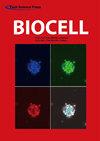结直肠癌的癌症相关成纤维细胞:液体活检和靶向治疗的转化前景
IF 1
4区 生物学
Q4 BIOLOGY
引用次数: 0
摘要
结直肠癌(CRC)是一个主要的全球健康问题。结直肠癌中癌症相关成纤维细胞(CAFs)的积累与不良预后和疾病复发有关。CAFs是肿瘤微环境的主要细胞成分。在各种分泌体的促进下,caf -肿瘤细胞相互作用驱动结直肠癌的发生。CAF群体的复杂性导致了结直肠癌的异质性,并影响了患者的生存和治疗反应。由于它们在结直肠癌发生中的重要作用,人们提出了利用或靶向caf的不同临床应用。循环CAFs (cCAFs)可以在血液样本中检测到,已被提议用于帮助确定患者预后,并通过液体活检检测癌症。液体活检因其非侵入性,允许频繁和容易的取样,并显示与组织活检分析的一致性而受到关注。此外,目前正在广泛研究caft靶向治疗作为结直肠癌的治疗途径之一。已经报道了多种CAFs靶向治疗的机制,包括阻断涉及CAFs和癌细胞的信号通路,从而消除CAFs -肿瘤细胞串扰,从而阻碍肿瘤发生。cCAFs的这些转化应用和作为CRC治疗的关键靶点的利用,虽然仍处于发展的早期阶段,但在未来可能会改善CRC患者的管理。本文章由计算机程序翻译,如有差异,请以英文原文为准。
Cancer-associated fibroblasts of colorectal cancer: Translational prospects in liquid biopsy and targeted therapy
Colorectal cancer (CRC) is a major global health concern. Accumulation of cancer-associated fibroblasts (CAFs) in CRC is associated with poor prognosis and disease recurrence. CAFs are the main cellular component of the tumor microenvironment. CAF-tumor cell interplay, which is facilitated by various secretomes, drives colorectal carcinogenesis. The complexity of CAF populations contributes to the heterogeneity of CRC and influences patient survival and treatment response. Due to their significant roles in colorectal carcinogenesis, different clinical applications utilizing or targeting CAFs have been suggested. Circulating CAFs (cCAFs) which can be detected in blood samples, have been proposed to help in determining patient prognosis and enables the detection of cancer through liquid biopsy. Liquid biopsy is gaining traction as it is non-invasive, allows frequent and easy sampling, and shows concordance to tissue biopsy analysis. In addition, CAF-targeted therapy is currently being studied extensively to be used as one of the treatment avenues for CRC. Various mechanisms of CAF-targeted therapy have been reported, including blocking the signaling pathways involving CAFs and cancer cells, thus abolishing the CAF-tumor cell crosstalk and subsequently hindering tumorigenesis. These translational applications of cCAFs and utilization of CAFs as key targets for CRC therapy, although still in the early phases of development, will potentially improve CRC patient management in the future.
求助全文
通过发布文献求助,成功后即可免费获取论文全文。
去求助
来源期刊

Biocell
生物-生物学
CiteScore
1.50
自引率
16.70%
发文量
259
审稿时长
>12 weeks
期刊介绍:
BIOCELL welcomes Research articles and Review papers on structure, function and macromolecular organization of cells and cell components, focusing on cellular dynamics, motility and differentiation, particularly if related to cellular biochemistry, molecular biology, immunology, neurobiology, and on the suborganismal and organismal aspects of Vertebrate Reproduction and Development, Invertebrate Biology and Plant Biology.
 求助内容:
求助内容: 应助结果提醒方式:
应助结果提醒方式:


